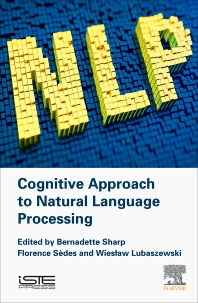LIMITED OFFER
Save 50% on book bundles
Immediately download your ebook while waiting for your print delivery. No promo code is needed.
As natural language processing spans many different disciplines, it is sometimes difficult to understand the contributions and the challenges that each of them presents. This bo… Read more

LIMITED OFFER
Immediately download your ebook while waiting for your print delivery. No promo code is needed.
As natural language processing spans many different disciplines, it is sometimes difficult to understand the contributions and the challenges that each of them presents. This book explores the special relationship between natural language processing and cognitive science, and the contribution of computer science to these two fields. It is based on the recent research papers submitted at the international workshops of Natural Language and Cognitive Science (NLPCS) which was launched in 2004 in an effort to bring together natural language researchers, computer scientists, and cognitive and linguistic scientists to collaborate together and advance research in natural language processing.The chapters cover areas related to language understanding, language generation, word association, word sense disambiguation, word predictability, text production and authorship attribution. This book will be relevant to students and researchers interested in the interdisciplinary nature of language processing.
BS
FS
WL